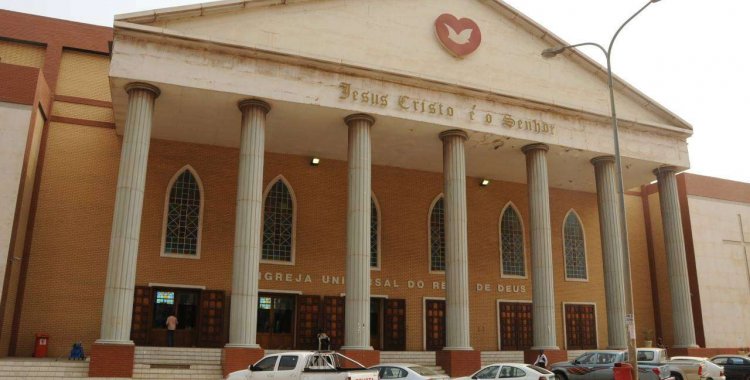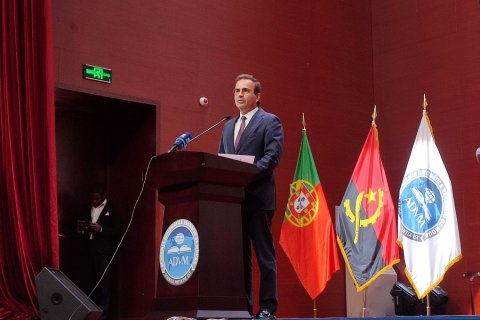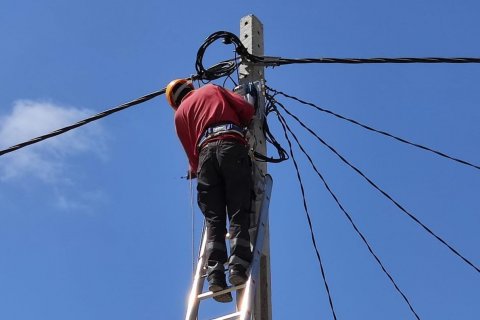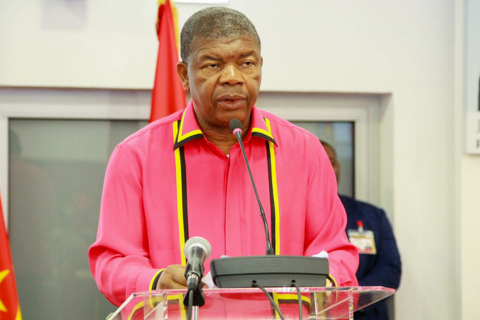Carlos Alberto França said that the matter was not discussed with his Angolan counterpart at the meeting of the III High Level Bilateral Commission between Angola and Brazil, which took place this Wednesday in Luanda, stressing that this is not a problem in the relationship between the two countries and that the Brazilian government does not comment on court decisions.
"It's just one aspect of our relationship. There are others that we have and that reinforce our relationship. It's certainly not a problem in Brazil's relations with Angola (...) it's just one of the many dimensions that our bilateral relationship has", said the Minister of Foreign Affairs as he left the meeting.
He also stressed that Brazil "is proud" of the Universal Church of the Kingdom of God (IURD), a Christian church born in Brazil and that "spread around the world" with "almost as many temples as the Brazilian Ministry of Foreign Affairs has embassies".
Carlos Alberto França also considered that the IURD provides a service of a religious and spiritual nature, but also humanitarian service "and of great value to Brazilian communities abroad", namely those in the United States, where it carries out with Brazilian consular representations, "a work of a humanitarian nature" that not only provides "spiritual comfort", but also helps Brazilian nationals to adapt abroad.
Reiterating that Brazil is a secular state, the minister noted, however, that religion is part of the country's activities and, in this sense, the government is attentive to the activities of churches abroad.
The internal differences of the IURD in Angola have been going on since 2019 and culminated in the separation of the church into two wings, both claiming the designation IURD Angola: one, linked to Brazil, currently with Angolan leadership; the other, formed by the dissident Angolan wing, recognized by the Angolan government, through the National Institute of Religious Affairs (INAR) as a legitimate representative.
This week, the IURD in Angola (Brazilian wing) complained of having been "prevented" by the Government of Luanda from holding a "cry for families at the foot of the cross" on Sunday, despite having communicated to the authorities.
The IURD claims to have addressed letters to the authorities of the municipality of Talatona, south of Luanda, to the municipal and district police command and to the Provincial Government of Luanda (GPL), but was not authorized to carry out the activity in a space allocated to the church.
The IURD says that the use of its space "does not require a request for authorization, but a statement", and considers that the way in which the church proceeded "does not constitute a breach of any law".
Even after complying with all the protocols, the IURD claims to have been surprised by the GPL's response, saying that "the celebrations of religious activities that must be authorized by the competent local authorities are limited to legally recognized religious entities".
The IURD, recognized in Angola since 1992, recalls that "it has an internal statute, in which its legitimate representatives were elected by a duly convened general assembly, with Bishop António Miguel Ferraz being the legitimate representative of the church in Angola".
A judgment by the Luanda District Court (TCL), dated March 31, 2022, acquitted the UCKG pastors of the crimes they had been accused of and ordered the "lift of the seizures and the immediate return" of the temples, closed two years ago, as Bishop Alberto Segunda said last April.
Alberto Segunda (leader of the Brazilian wing), who was speaking at a press conference, reported that the reopening of the UCKG's temples was followed by alleged "threats and intimidation" by Angolan INAR officials and police officers against their faithful.
On the occasion, the Angolan bishop asked for the intervention of the President, João Lourenço, to "mediate the conflict" that persists, especially in relation to the more than 100 temples, and "special attention" to the more than 500,000 faithful.
The direction of the IURD recognized by INAR is headed by Bishop Valente Bizerra Luís, who coordinated the reform commission that came into conflict with the Brazilian leadership of the IURD in 2019.
Both wings - the one of Brazilian origin, now led by the Angolan Alberto Segunda, and the dissident Angolan wing, led by Bizerra Luís - claim to be the legitimate representatives of the church founded by the Brazilian Edir Macedo.







